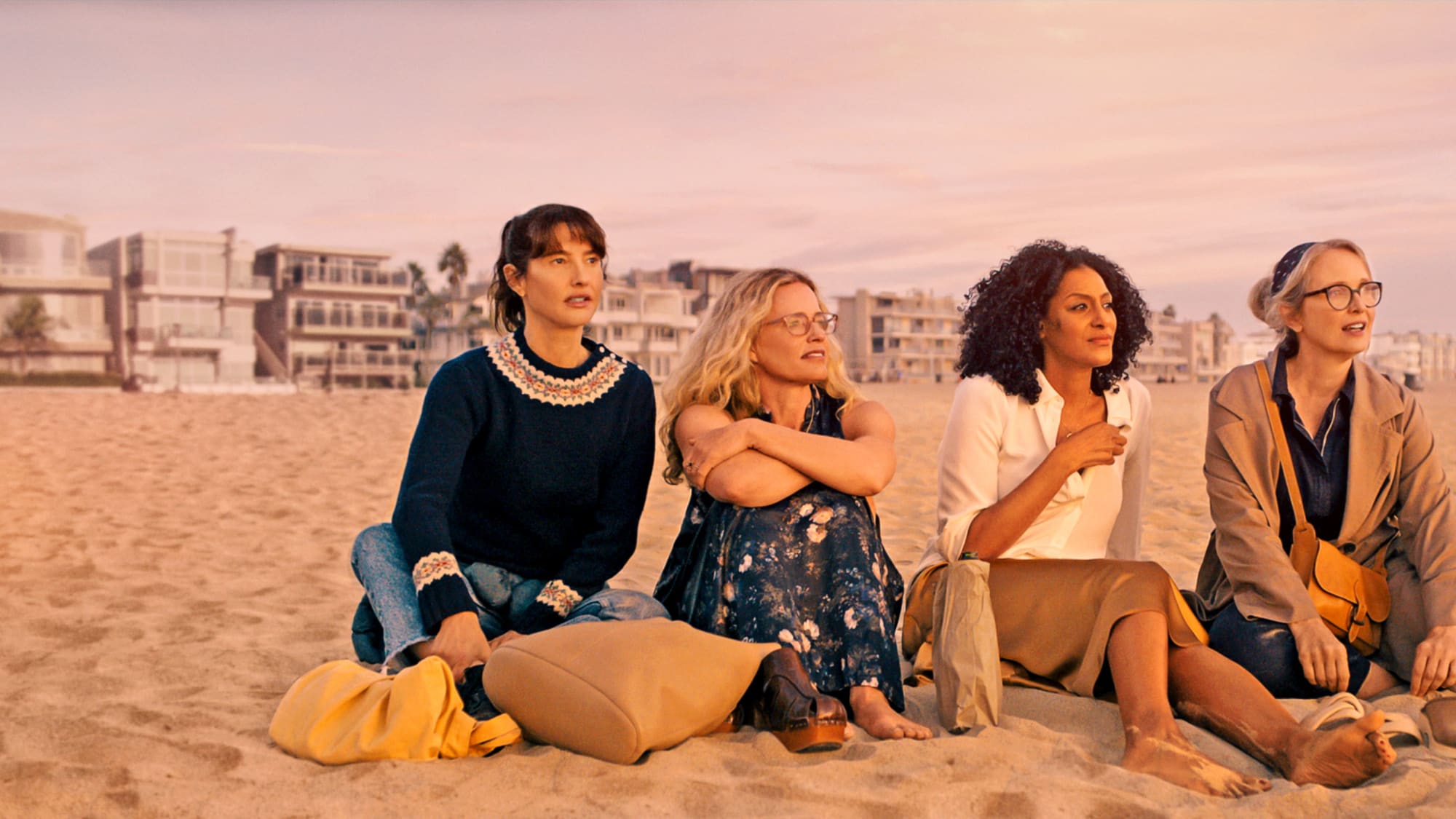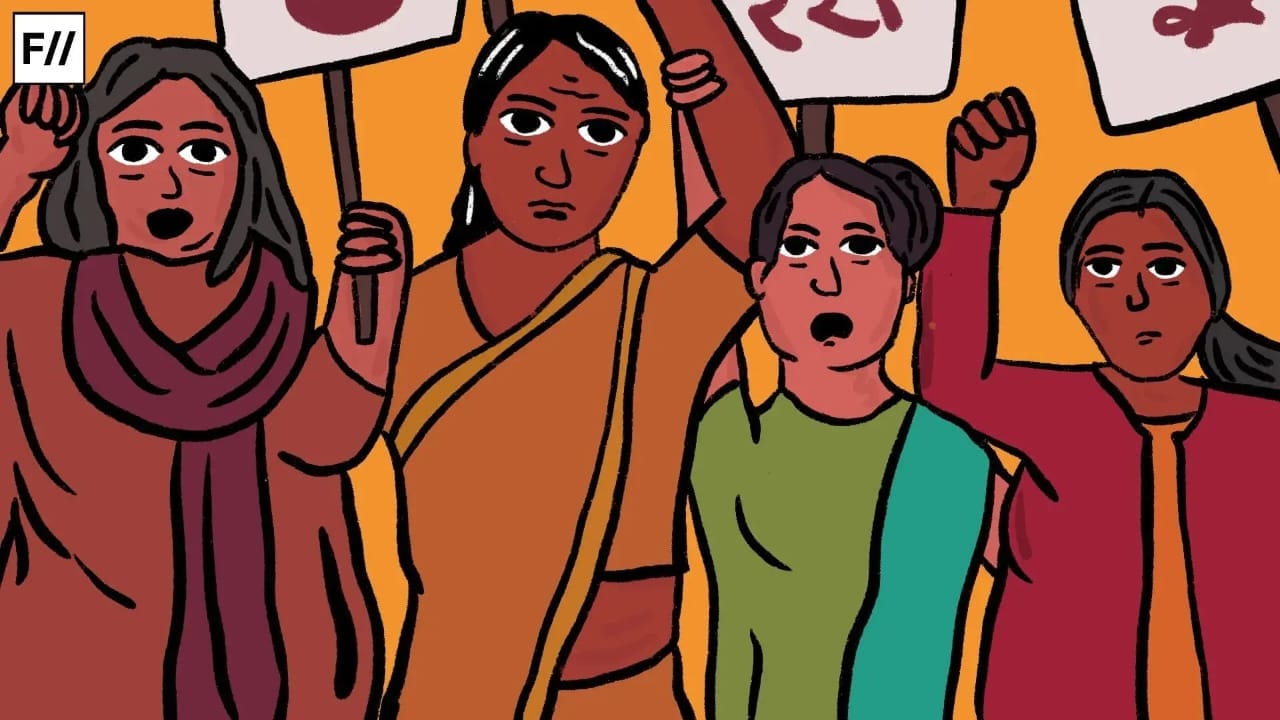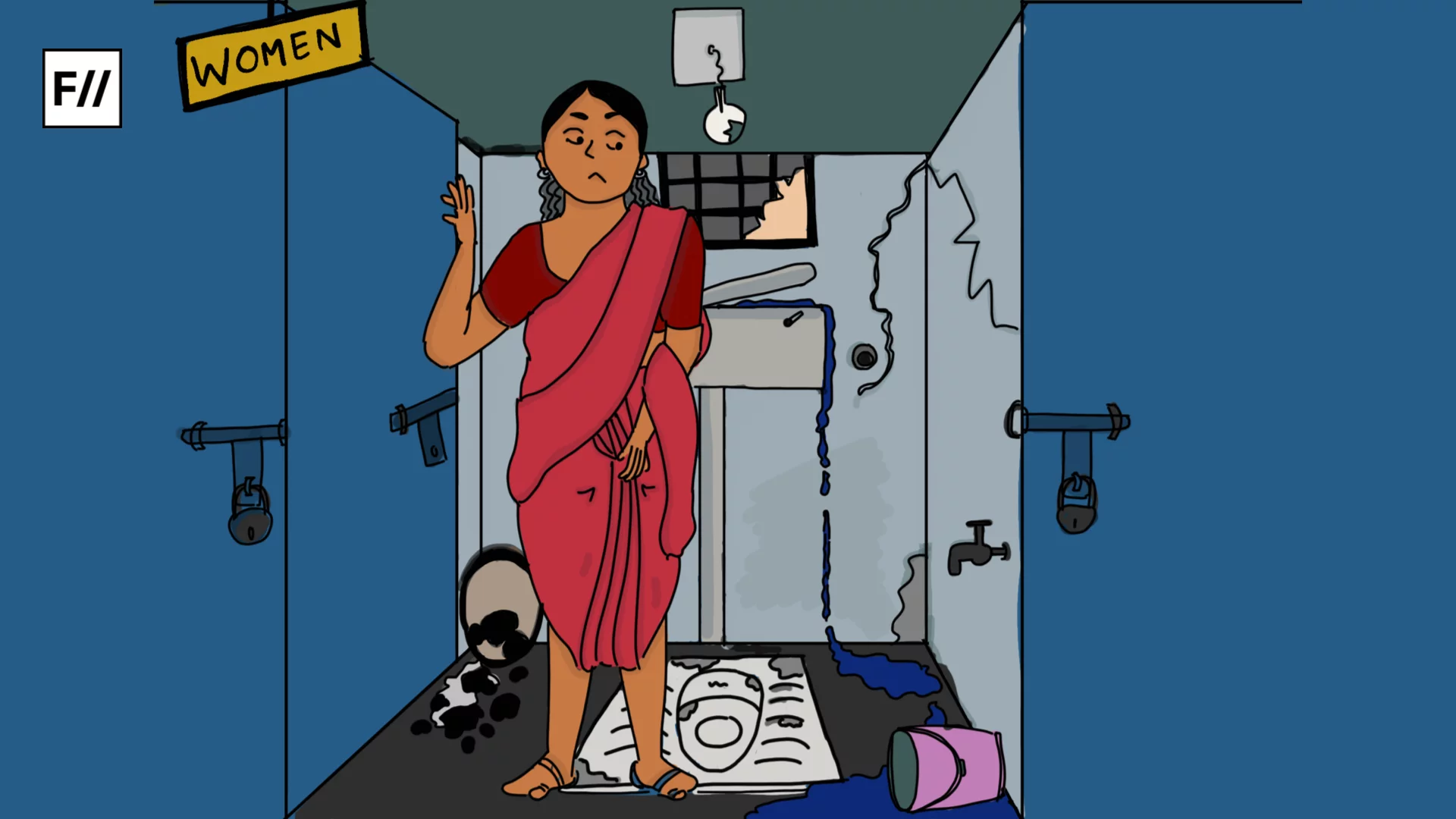On The Verge is a Netflix series created and partly directed by French-American actor, writer, film maker and lyricist Julie Delpy along with Alexia Landeau. In this extremely well textured take on the lives of four women in their 40s and 50s, Delpy creates a world rife with slow boiling anxieties, self-doubt, parenting crisis, relationship troubles, and gendered expectations.
Set in modern day, pre-covid America, On The Verge takes us through the lives of Justine (played by Julie Delpy) a French chef and restaurateur, Ell (played by Alexia Landeau) a single mother struggling to raise three ethnically diverse children, Anne (played by Elisabeth Shue) an heiress with a thriving fashion label and a love for recreational drugs, and Yasmin (Sarah Jones) a Black, Persian woman obsessed with her son.
Tv shows and web series anchored on female friendships are very common in popular culture. Most of them focus on the lives of younger women, and seldom explore the experiences of women in their late 40s or ongoing 50s. The gaze of most of these shows is also undeniably male. The female protagonists are often unnecessarily glamourised to suit the unrealistic standards women and their bodies are expected to match up to.
A definite subversion of this gaze is evident when women create and tell stories about women. They encompass a certain experiential rawness in the exposure of the female experience without accentuating it for appeal, as was the case with Phoebe Waller Bridge’s brilliant, Fleabag.
On The Verge is another attempt in the subversion of the glossy story telling of women’s lives. It positions itself far away from the “hot girls in a hot mess” brand of sexed up sensationalism that can usually be found in populist content that deals with the trials and tribulations of female friendships.
Panic attacks, patriarchy, self-doubt: The lives of middle-aged women
On The Verge is not only based on older women but also keenly invested in their lives. When the show opens, Justine is an exhausted chef, who is also trying to write her own cook book. She is extremely attached to her son and equally passionate about her thriving career.
Her husband Martin (played by Mathieu Demy) is an architect trying to find work. He has an elaborate work space in the house, whereas, Justine makes do with a tiny little space where they store their groceries and essentials, despite being the one who also pays for it all.
Justine is maddened by Martin’s constant disapproval of her labour and his ‘jokes’ that put her down. Though she is sought after as a chef and brilliant at being a parent, she is quite unsure of her talents or worth, all credits to her husband’s subtle aggression and manipulative disapproval.
At an employment interview, Yasmin begins to gasp for air mid conversation and the interviewer, a much younger woman asks her if she is having a heart attack. Yasmin replies, “I am 46 not 96, I am having a panic attack not a heart attack”. This statement, which also features in the trailer of the show, perhaps encapsulates the conscience of On The Verge. The show captures older women as they are – with all their escalating anxieties, mid-life existential dread, and epiphanies about how patriarchal the men in their lives are in close quarters
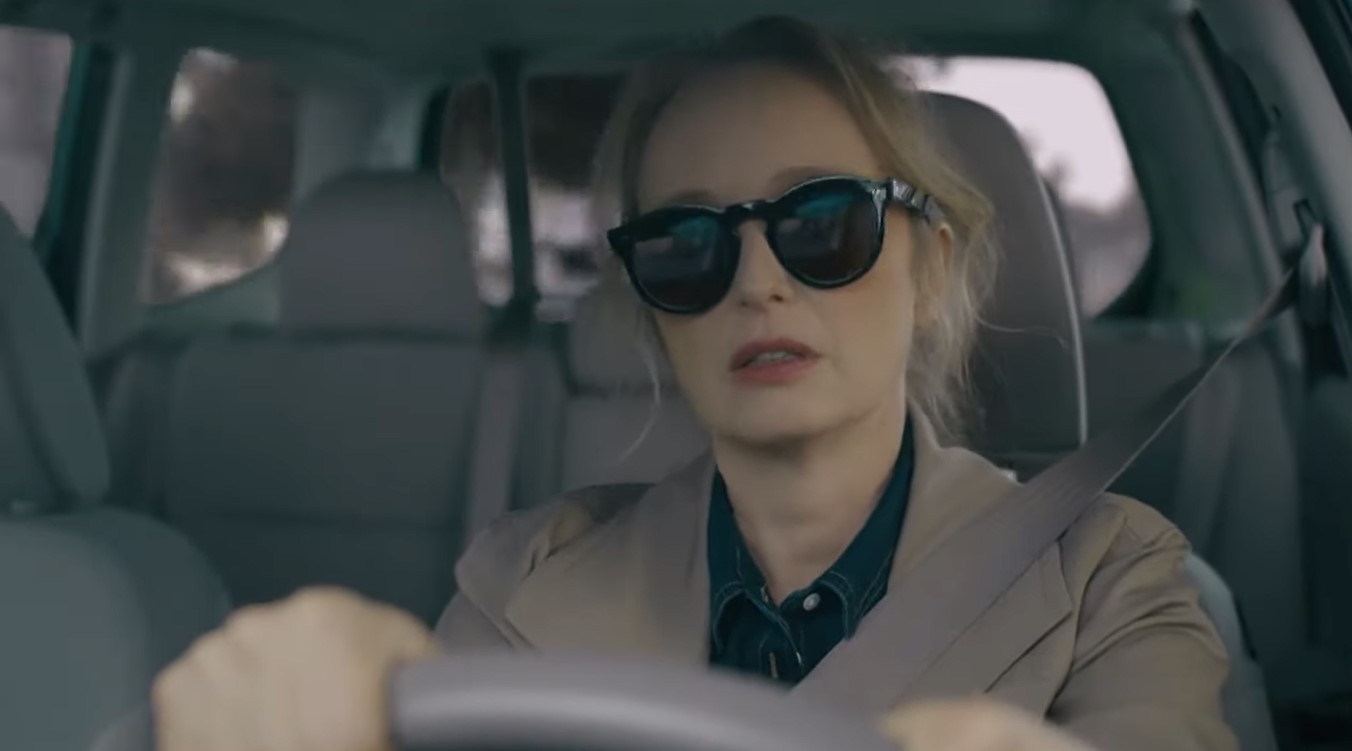
Anne on the other hand, battles a crumbling marriage, while also trying to create a safe home for her son throughout the separation. She is an entrepreneur constantly bogged down by the financial and other interferences of her perpetually dissatisfied mother and a non-communicative, almost ex-husband.
Ell, the most financially and socially disadvantaged character among the four women brings in the reminder that class differences affect relationships, even when there is enough love within the equation. She has three children from three partners, all belonging to different ethnic identities. She struggles to make ends meet and has been desperately trying to make some easy money through family vlogging.
Yasmin is perhaps the most put together of the four. She is secretive and obsessed with the routine of her son. She is in pursuit of completing a PhD, and getting back to her profession. But the long career gap after childbirth gives her intense anxiety to resume work again. At an employment interview, Yasmin begins to gasp for air mid conversation and the interviewer, a much younger woman asks her if she is having a heart attack. Yasmin replies, “I am 46 not 96, I am having a panic attack not a heart attack”.
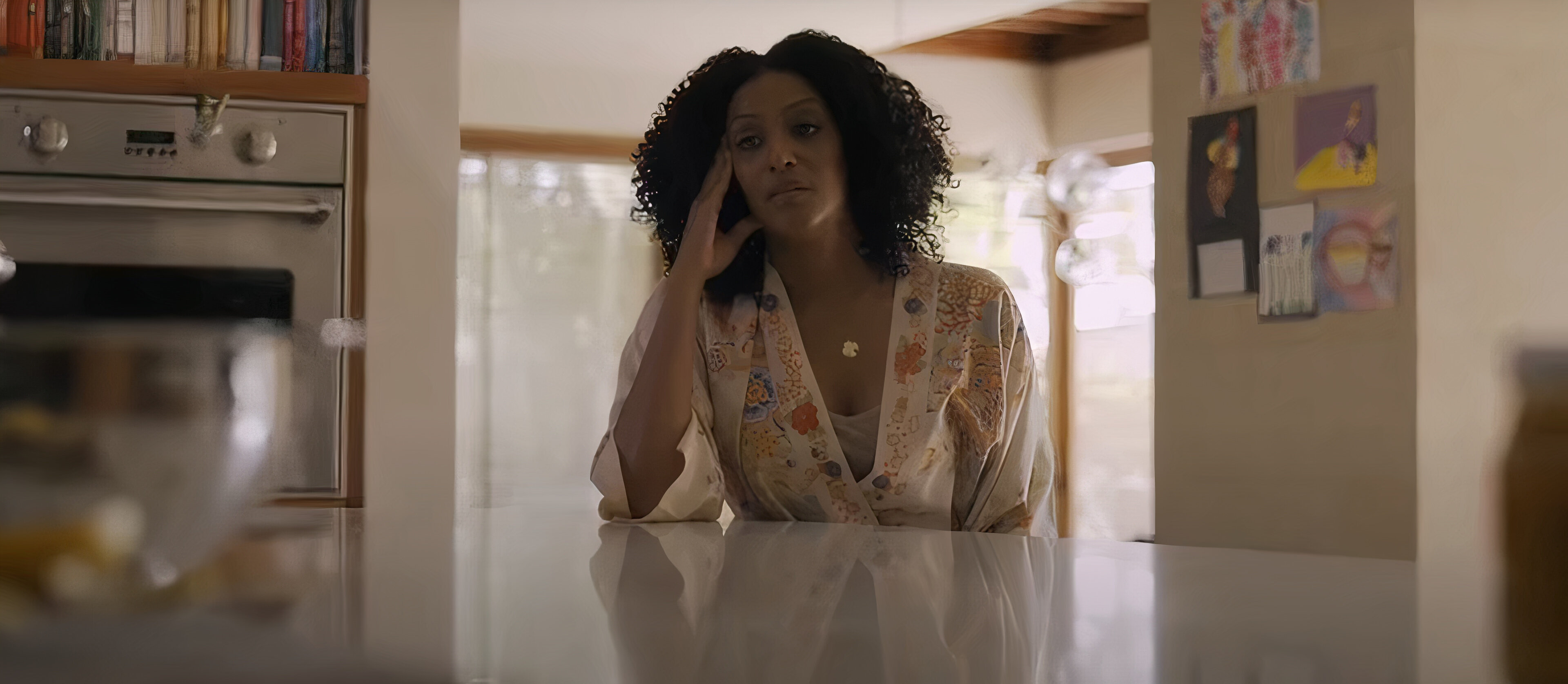
They may not be able to reproduce again, their skin sags, without cosmetic surgeries their appeal diminishes – they are past their ‘prime’ according to male, commercial standards. Therefore, their lives are neither documented nor explored with a sense of value. They are invisible women who have nothing to offer, except their sacrificial presence and labour. As for their wit, aspirations, sensuality or wisdom, well who cares!
This statement, which also features in the trailer of the show, perhaps encapsulates the conscience of On The Verge. The show captures older women as they are – with all their escalating anxieties, mid-life existential dread, and epiphanies about how patriarchal the men in their lives are in close quarters. This is an age group of women popular culture has seldom shown interest in, perhaps because they are not ‘appealing’ enough for showbusiness.
In that sense, On The Verge is may not be ‘appealing’ because it takes cognisance of older women and their conflicts with a devastating sense of humour, repetition and sarcasm. The fact that a 47-year-old woman is assumed to be too old to have other problems apart from heart attacks unpacks the invisibility women in this age group endure socially and culturally.
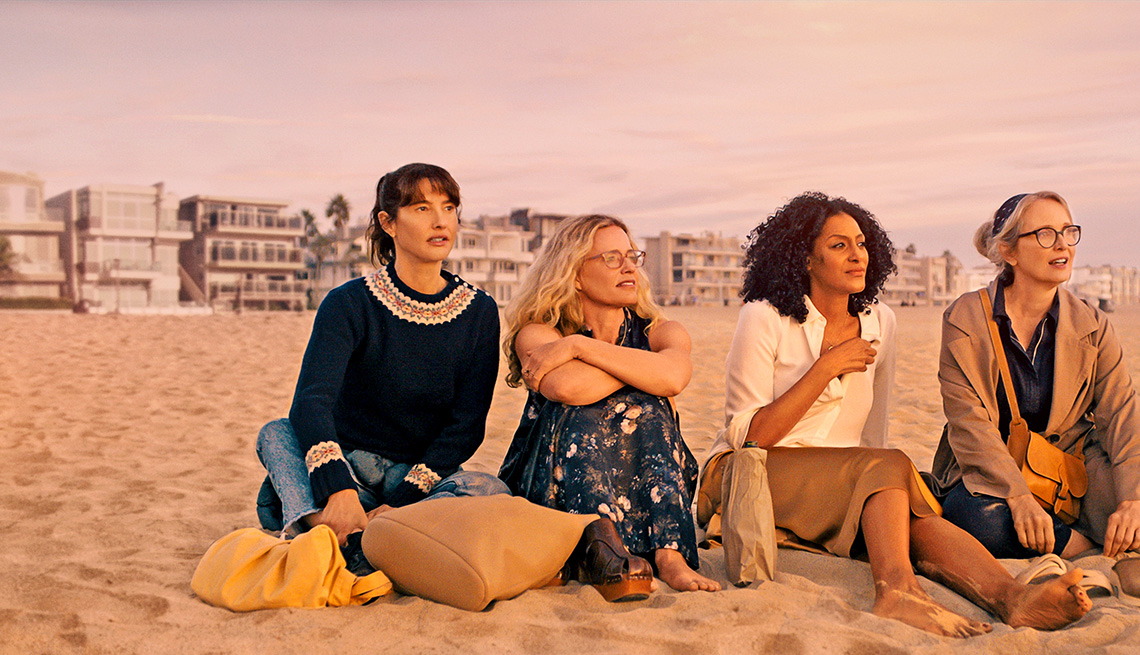
They may not be able to reproduce again, their skin sags, without cosmetic surgeries their appeal diminishes – they are past their ‘prime’ according to male, commercial standards. Therefore, their lives are neither documented nor explored with a sense of value. They are invisible women who have nothing to offer, except their sacrificial presence and labour. As for their wit, aspirations, sensuality or wisdom, well who cares!
In this context, On The Verge does an absolutely important job of documenting older women with the nuance, honesty, intent and critical attention they deserve.
Also read: The ‘Unlikeable’ Millennial Woman In Fleabag And Who Gets To Be Her
‘This is not very feminist but it sells’
On The Verge very subtly demolishes the male gaze with counter narratives that expose how women actually feel, while being repeatedly infantalised, patronised and objectified.
Justine’s marriage portrays how aggression in the marital space is not just about physical violence. Micro aggressions like gaslighting, assuming the upper hand, convincing the partner that they are beneath the other, trying to manipulate children against the spouse, guilt tripping, asking the partner to cover up for their spouse and creating a tense, passive aggressive atmosphere in the house, are all various kinds of intimate partner abuse.
Women often recognise these patterns much later in their lives, because they are conditioned to adjust and adapt to patriarchal power hierarchies within the family. Justine finally taking up space in the study which her husband had demarcated as his own, while she used to work on her book amidst stacks of toilet rolls is both a moment of relief and assertion of agency in the domestic space.
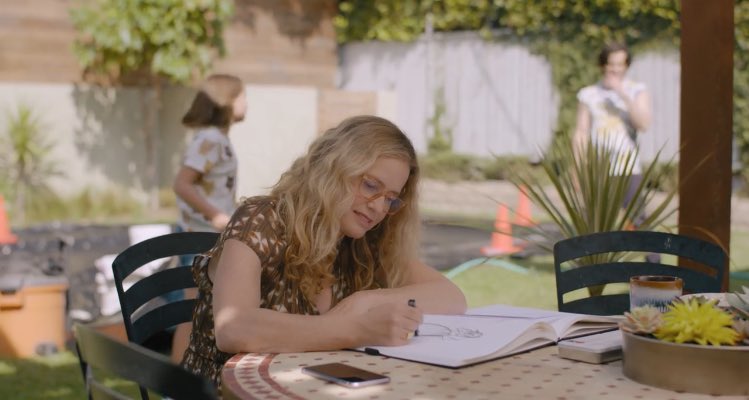
A scene where Justine is being photographed for the cover of her cook book is another striking moment in the show for how it critiques the male gaze. Justine, an established cook and culinary celebrity is asked to pose without pants, exposing her thighs. Her bodily features are then accentuated and air brushed by the male photographer and his male crew members, who praise it.
Justine says she is uncomfortable and that this is not very feminist. Feeling entrapped, scared of bursting the photographer’s male ego and anxious about how to deal with the confrontation, she retracts with, “This is not very feminist, but…this sells?” Women are left feeling overwhelmed and clueless when confronted with hypermasculine frat clubs, and the natural reaction is often to cave in, which Justine’s character so vulnerably exposes.
The show unfolds slowly, and sometimes it may leave the viewer disappointed for the lack of plot twists. But that is perhaps intentional in the show’s contextual premise because for women above their late 40s, life becomes quite stagnant. They suffer within the paradoxes of being feminist, and having to perform gender in accordance with the roles assigned to them, regardless
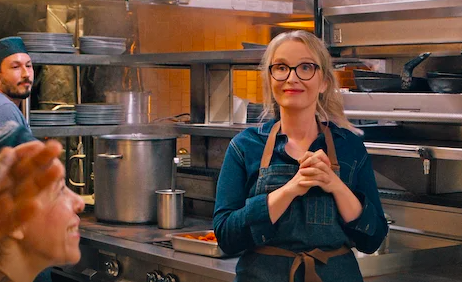
Towards the climax of the season, the women take their children to a paintball outing. Anne’s son does not enjoy guns or violence. Some of the children critique the idea of pretending to be in an apocalypse and eliminating imaginary enemies with the statement, “Do you think you will ever have to fight for your life in an apocalypse?”
On The Verge positions such combat and the power trip from violent upper hand as a very masculine pursuit, which it cleverly subverts using children of today’s generation who are learning to call out power relationships and gender roles.
The show unfolds slowly, and sometimes it may leave the viewer disappointed for the lack of plot twists. But that is perhaps intentional in the show’s contextual premise because for women above their late 40s, life becomes quite stagnant. They suffer within the paradoxes of being feminist, and having to perform gender in accordance with the roles assigned to them, regardless.
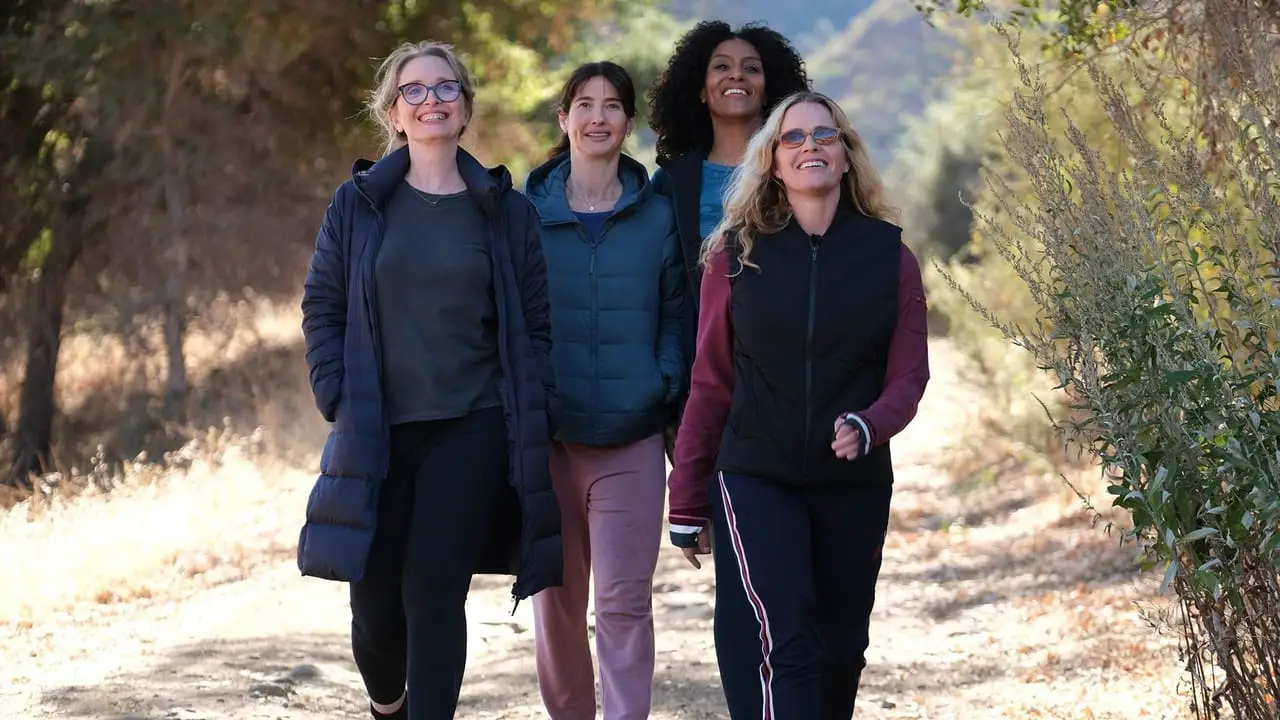
It takes a jolt of self realisation, therapy, precise deciphering of manipulative patterns, affirmations from children and hugs from girl friends to finally see for themselves that their lives and bodies primarily belong to them, and only them.
On The Verge is delightful in its slow-paced irreverence and if not for anything else, it deserves to be watched for the pointed wit Julie Delpy brings out through the protagonists who have the underrepresented experiences and wisdom of half a life behind them. These women are on the verge of losing it at an age when everyone expects them to have it all together, and that is perhaps the brutal, understated truth about being middle-aged women.
Also read: Feminism On The Screen: 10 Feminist TV Series Of 2019
Featured Image Source: Netflix Life
About the author(s)
Sukanya is a lawyer-turned-journalist with experience in writing, editing, development communication, and advertising. She holds a graduation in law, a post-graduation in philosophy, and a post-graduate diploma in print journalism. She is also a published poet and was awarded the All India Poetry Prize in 2015. Her journalistic work is deeply focused on gender and intersectionalities, and they appear in Feminism In India, True Copy Think, and The News Minute.
